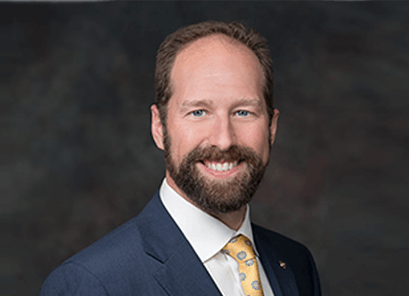Want A Lifestyle Practice? Close Your Web Browser
There’s more to having a lifestyle practice than taking time off: Micah Shilanski, CFP®, shares focus hacks to help you become hyper-effective at work.
5 min read

Financial Planner, CFP®
The essence of The Perfect RIA is not to talk about our perfection but rather the journey we are on to achieve perfection—the journey that delivers the most value possible to our clients. We still have a lot to learn, but we have quite a few things figured out—one of those things is having a lifestyle practice.
A lifestyle practice supports your dream lifestyle—whatever that may be—while still delivering massive value to your clients. It doesn’t mean you’re skipping client meetings to sip Mai Tais on a beach or leave your team hanging while you play golf with your friend Jerry.
Having a lifestyle practice means you’re hyper-effective at caring for your clients and not wasting time in the office. When I’m in the office, I’m making every second count. I am not stretching four hours of work across a forty-hour work week, and you shouldn’t either.
Maybe you’re spending all day at the office because you don’t have anything better to do. Why take a day off if your kids are still in school and your wife is doing her own thing? You’ve got to find a way to fill your off time so you can unwind and recharge. We can’t perform at our highest level without being able to decompress.
Your head trash tells you that the only road to success is to have your butt in the seat for forty hours. That’s just not true. The forty-hour work week is arbitrary. It’s just some made-up number our society started using for work success. You don’t need to work forty hours to be massively successful. You need to be hyper-effective at what you do.
You shouldn’t be in the office if you’re scrolling social media, browsing the internet, or playing solitaire to kill time. You are fried and burnt out. If you can’t focus on your work to deliver massive value to your clients, you’ve got to make a change.
Today is your lucky day! Take this quiz and find out what the #1 success killer is in your practice. Identify the pain points that are slowly killing your RIA and preventing you from achieving success, in only 2 minutes.
Whether it is time management, processes, value ads, or your marketing unlock access to some of the premium resources Matthew Jarvis, CFP®, and Micah Shilanski, CFP®, have already implemented (successfully!) and are sharing with our BackStage Pass members.
Focus hacks
You need forcing mechanisms to give that desk chair a rest, get out of the office to recharge, and come back hyper-focused on your work. Here are some focus hacks you can use to stop distractions:
Stop browsing the internet
Anytime you have your browser open, you’re not working. You’re going to get stuck reading the Wall Street Journal, Morning Star, or whatever, and before you know it, you’ve wasted at least thirty minutes.
Put an egg timer on your desk and when you need to Google a question, give yourself 10 minutes during your meeting prep time to look it up. If you can’t find your answer in 10 minutes, pick up the phone and call someone who will know that answer.
Ditch your phone
I know, it seems trivial—who’s so childish that they can’t stay away from their phones?
All of us, that’s who.
We can’t leave our phones alone. I can’t have my phone on my person or within arm’s reach. If I feel my phone vibrates, I’m going to check it. If it’s facedown on the table, I’ll check it.
Your phone is a constant distraction that will only sidetrack you. Just having it within arm’s reach is too close. You need to leave it in a drawer in your car, where you can’t constantly check it. Some advisors leave their phones in the car at work and at home because they can’t resist checking them.
People spend an average of six hours daily on their phones scrolling TikTok. That’s an entire workweek! While you’re doom-scrolling social media, I’m becoming a better advisor, husband, and father.
I can deliver more massive value in a week than most advisors can because while they’re spending hours browsing memes, I’m reading books, working on my personal and professional development, or spending quality time with my family.
Turn off your email notifications
I understand; when you see those email notifications, you think you can quickly check that. There’s no harm; it won’t hurt anything.
Fact check: you lose at least thirty minutes with every email notification you look at. You break your focus to look at the email, then maybe you respond to it or at least think about how you’ll respond, and you end up going down a rabbit hole of distractions. Once you decide to get back to work, you’ll spend between four minutes and four hours trying to get your brain back in gear.
And don’t get me started on how advisors think they can check email notifications during video calls with clients. While these advisors think they’ve looked away for half a second, their client has watched the time tick by for seconds, if not minutes, and can tell the advisor is distracted. That’s not delivering value. So, save yourself the embarrassment, and turn your notifications off.

Start single-tasking
Just because you can chew gum and walk doesn’t mean you can multi-task at work. No one can truly multitask. Don’t believe me, try the ABC 123 test:
- Use a stopwatch to time yourself writing all the letters of the alphabet and then all the numbers from one to twenty-six. Record your time.
- Time yourself again, but write “A 1,” “B 2,” and so on until you get to the end of the alphabet.
You’d think completing each step would take the same amount of time. After all, you’re making the same number of pen strokes. But step two is going to take you twice as long. Your brain has to shift gears constantly; we’re just not efficient at it.
To be more efficient, you must pick a single task and focus on it, distraction-free, until it’s complete. Then move on to the next thing.
The exception to the rule
A lifestyle practice isn’t for everyone—only for those who have earned it. If you are in the early stages of your career and can only dream about paying the mortgage next month, a lifestyle practice isn’t for you—yet.
You don’t have the income or the clientele to support a lifestyle practice. You should not spend Friday afternoon golfing with your buddy Jerry; you should be cold-calling prospects. Until you get around a hundred clients, your whole world needs to revolve around prospecting.
Or maybe you don’t think a lifestyle practice is right for you; that’s great, I guess. But if you’re working twice as much as I do but not doubling my revenue, I think you’ve got room to improve before you discount the idea.
Popular Topics
Still Holding Out on Surge™? 2023 Could Be Your Year
Micah Shilanski, CFP®, busts myths and misconceptions surrounding Surge meetings and shows how
Value Adds
If you are routinely providing clients with value adds in a consistent, efficient, and deliverable
Is That OK With You?
One of the most significant differences between ‘good’ advisors and rock-star level advisors is
Like Coke from a Coffee Mug: Run Your Best Client Meeting
Client meetings can be a dreaded part of a routine or you and your clients’ favorite part of your
5 Questions Every Advisor Should Ask
Matthew Jarvis, CFP®, answers five essential questions every advisor should ask to transform
What You Should
READ NEXT
Is it a joy or a burden talking with you?
Being with an upset client or a vendor that screwed something up, if you come in guns blazing, MAYBE you’ll get your way, but you will have burned a
Masterclass Sneak Peek: Check Out Micah’s Prospect Process
Micah Shilanski, CPF®, shares how he sets the stage for a premium client experience for his prospects so he can deliver as much value as possible during prospect meetings.
Is That OK With You?
One of the most significant differences between ‘good’ advisors and rock-star level advisors is their use of open-ended vs. closed-ended
Start the change today!
Get our 3 most popular power sessions FREE. You and your team will learn about: Time Blocking, the One Page Financial Plan, and the “Buckets of Money” approach.



